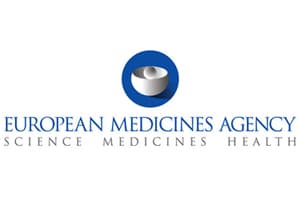 The European Medicines Agency has recommended for approval ten new medicines, including treatments for cancer and rare diseases.
The European Medicines Agency has recommended for approval ten new medicines, including treatments for cancer and rare diseases.
First up, two enzyme replacement therapies for the treatment of rare genetic diseases: Kanuma (sebelipase alfa) for the treatment of lysosomal acid lipase deficiency, and Strensiq (asfotase alfa), the first therapy for the bone disease hypophosphatasia that started in childhood.
Both drugs are manufactured by rare disease specialist Alexion – Kanuma was originally developed by Synageva, but the firm was acquired by Alexion last month, giving the US company an early boost from its purchase.
David Hallal, CEO of Alexion, said: “The CHMP positive opinions for Strensiq and Kanuma are significant milestones in bringing these therapies to infants, children, and adults suffering from HPP and LAL-d in Europe.
“Both Strensiq and Kanuma are highly innovative enzyme replacement therapies that, if approved, will be the first treatments available for patients with HPP and LAL-d, two life-threatening and ultra-rare metabolic disorders.”
The CHMP also recommended granting a marketing authorisation for Novartis’ Farydak (panobinostat) for the treatment of relapsed and/or refractory multiple myeloma (MM). Farydak is the first cancer medicine that targets enzymes known as histone deacetylases.
The drug will now seek to compete in a fairly competitive MM market, which includes treatments from Celgene, Amgen and Takeda, and the drug can only be used after failure of other treatments from these firms. Farydak was also approved by the FDA in March – but came with a ‘Black Box’ safety warning.
Novartis has also received a second recommendation for another cancer drug in the form of Odomzo (sonidegib), which is indicated for the treatment of basal cell carcinoma, the most common – but least deadly – form of skin cancer.
The EMA’s drug efficacy and safety arm the CHMP has also recommended CSL Behring’s Respreeza (human alpha1-proteinase inhibitor) for the treatment of alpha1-proteinase inhibitor deficiency – an inherited disorder that may cause lung disease and liver disease.
Generic recommendations
Three generic medicines received positive opinions from the CHMP: Docetaxel chemotherapy agent from Hospira UK Limited (docetaxel) for the treatment of breast cancer, non-small cell lung cancer, prostate cancer, gastric adenocarcinoma, and head and neck cancer.
Duloxetine Zentiva (duloxetine) – a copycat of Lilly’s Cymbalta – for the treatment of major depressive disorder, diabetic peripheral neuropathic pain and generalised anxiety disorder, also saw a nod from the EMA.
And a generic form of Pfizer’s Lyrica from Accord, which will be known as Pregabalin Accord (pregabalin), for the treatment of epilepsy and generalised anxiety disorder, has also gained a recommendation from the Agency.
Hybrids
Two ‘hybrid’ medicines received have been given a positive opinion from the CHMP. This includes Aripiprazole Sandoz (aripiprazole) from Novartis’ generics unit, indicated for the treatment of schizophrenia and the prevention and treatment of manic episodes in bipolar 1 disorder.
This is a copycat version of Bristol-Myers Squibb/Otsuka’s blockbuster Abilify (aripiprazole), which made $5.5bn last year, but is now starting to succumb to generic erosion.
And finally the CHMP has recommended Santhera’s Raxone (idebenone) for the treatment of visual impairment in patients with Leber’s hereditary optic neuropathy.




